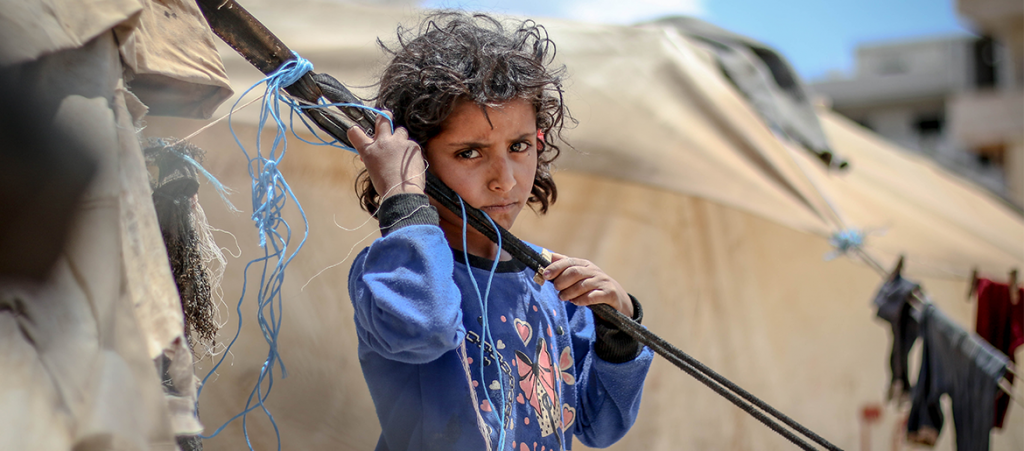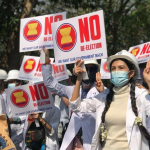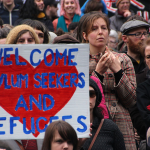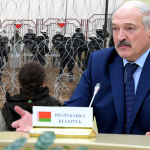
Keeping up with world news and foreign affairs stories means you’ve probably come across the term “international law” a lot. Countries are often reported as breaking international laws – including Myanmar, Israel, and yes, Australia – usually for violating human rights. With the news cycle seemingly dominated by these stories, it’s fair to ask: how does international law actually work, then? Do they have any real impact on the world if they’re being continually broken?
Here’s the basics you need to know about the international system. Keep it in mind when you’re reading the news!
What is international law?
International law refers to the rules, principles and customs that facilitate the relationship between ‘States’ (a territory organised under governing body) as well as among individuals, identity groups and international organisations or companies.
After World War II, the international community formed the United Nations in an attempt to maintain international peace and security. The United Nations provides the forum for states to discuss what laws should be created. These laws are formed via agreements which can involve either two states (bilateral agreements) or many states (multilateral agreements). International law can also be founded in treaties which are also made at the United Nations.
How does international law work?
International law is applies to every state that has signed on to the agreement and has formalised the agreement in their domestic laws. But sometimes international law also applies to States that are not signatories to the agreement – these are known as customary laws.
If an international law has been practiced by a majority of the international community for a reasonable amount of time, it becomes ‘customary international law’. These are binding upon every single State, regardless of whether they were signatories to the original agreement or treaty. Technically a State can object to the law to avoid being bound to it, there have not been many instances of this succeeding.
Editor’s Note: The international system is highly cooperative, which is why nationalistic leaders like former President Donald Trump, Russian President Vladimir Putin, and Israeli Prime Minister Benjamin Netanyahu, Russian Putin are so dangerous. They don’t really care about participating and cooperating with others – they only care about their own country’s supremacy.
Here’s an example in action: Australia is a signatory to the ‘International Covenant on Civil and Politics Rights’ (‘ICCPR’). Although we have not fully adopted the treaty into our own domestic law, the treaty has achieved customary status – so we’re bound by it anyway.
The ICCPR includes laws pertaining to the treatment of asylum seekers, and in 2013 the UN Human Rights Committee (UNHRC) found Australia was guilty of 143 violations of the treaty. For example: it is against the ICCPR to hold refugees in detention indefinitely, unless there is a real danger of the individual committing crimes against others. Australia was found to be holding refugees indefinitely without providing any justification. Indefinite holding periods also caused severe psychological harm to asylum seekers, another violation of the ICCPR.
The UN urged Australia to release the refugees and provide them with compensation in compliance with Article of the ICCPR… but our government has not done this. In fact, the UN continues to find Australia in breach of the ICCPR and has continued to attempt to enforce the law.
So, does it have any real-world impact?
With close-to-home examples like Australia’s continued breaches of asylum seeker laws, most people assume these laws cannot be enforced and therefore international law does not work. There’s no international enforcement body like the police, right?
For disputes between states (e.g.: the Torres Strait Island group’s climate change case against the Australian government) the process is similar to a domestic civil lawsuit. One party brings the other to court – the International Court of Justice (ICJ).
But when it comes to war crimes, crimes against humanity, genocide and human rights violations, it follows a process closer to a domestic criminal charge. These crimes are heard in specifically established tribunals within the International Criminal Court (ICC). The United Nations Security Council can inform the Prosecutor of the ICC of any international crimes, who prosecutes the state. If found ‘guilty’, sanctions would be imposed here.
The Security Council can also impose mandatory sanctions to try to stop threats to peace, breach of peace or acts of aggression before getting the ICC involved. These can include economic sanctions like trade embargos, diplomatic sanctions like disconnection of diplomatic relations or military sanctions like the use of armed force.
Does that work though?
Here’s the catch: the Security Council has five permanent, unelected members – China, France, Russia, the United Kingdom and the United States. When the council votes on whether to take action against a state, any one of these can veto the decision.
This is why people question the impact of international law, because politics clearly influences justice. None of the five members are likely to draw attention to their own breaches of international law, or those of their allies. The ‘I’ll scratch your back if you scratch mine’ mentality is applied here, which is why Australia tends to never receive anything more than a smack on the wrist (the UK, US and China have our back). On the other hand, many African countries are constantly subjected to the rule of law.
This is exactly what happened on May 14, when the Security Council met to discuss the violence between Israel and Palestine. Although the UN is committed to ending the attacks, the US (Israel’s biggest supporter) vetoed the proposed actions by the Security Council.






